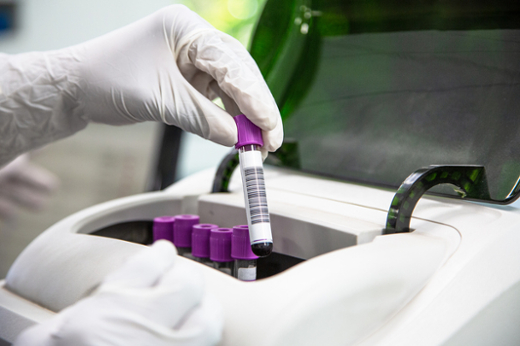ATLANTA – Health care workers are thought to be at high risk for contracting COVID-19 from on-the-job exposures. However, new research from Emory University shows exposures to people with COVID-19 outside the workplace, as well as Black race, were the strongest predictors of positive COVID-19 antibody tests, also known as seropositivity, in health care workers. The study was published online in the Annals of Internal Medicine on Jan. 29, 2021.
The researchers also determined living in a zip code with higher COVID-19 incidence increased the risk of seropositivity to SARS-CoV-2, the virus that causes COVID-19, as did reported contact with an infected health care worker.
“Our findings suggest that the greatest predictors of health care worker risk for SARS-CoV-2 seropositivity were outside of the workplace,” says James Steinberg, MD, professor of medicine in the Division of Infectious Diseases, Emory University School of Medicine and chief medical officer at Emory University Hospital Midtown.
“Demographic and community risk factors, including Black race and exposure to a COVID-19 infected person outside of work, were more strongly associated with SARS-CoV-2 seropositivity among health care workers than exposure in the workplace,” explains Steinberg, who is the senior author on the Annals of Internal Medicine paper.
Data from this study were collected from Emory Healthcare, a large health care system in metro Atlanta. Emory Healthcare offered free COVID-19 antibody testing to employees and medical staff members from April 19 through June 26, 2020, after the first surge of the pandemic. When registering for the test, health care workers completed a survey describing use of personal protective equipment (PPE), as well as possible exposure to COVID-19 inside and outside the workplace.
A total of 10,275 health care workers (35 percent of the Emory Healthcare workforce) participated in the testing and survey. Antibody testing, adjusted for false positive and false negative results, showed approximately 3.8 percent of employees/medical staff had antibodies indicating SARS-CoV-2 seropositivity after the first surge of the pandemic.
“This was one of the largest studies to date of SARS-CoV-2 antibody testing among health care workers, a group potentially at high risk for SARS-CoV-2 infection,” says Kristin Nelson, PhD, assistant professor of epidemiology at Rollins School of Public Health, Emory University and co-first author on the paper with postdoctoral fellow Julia Baker, PhD.
“Understanding the factors that put health care workers at risk can guide improvement of infection prevention practices that keep health care workers and patients safe. It's really difficult to do this without considering risk factors outside the workplace. What we've done in this study is account for COVID-19 incidence where health care workers lived, to allow for the possibility that they may have been exposed outside the workplace,” says Nelson.
The researchers noted they found few risk factors for infection in the workplace. Health care workers who reported caring for patients with COVID-19 and those who worked in procedure areas were not more likely to be seropositive. However, those who worked in certain locations such as the emergency department, non-COVID-19 clinical areas and units set up to care for COVID-19 patients were somewhat more likely to be seropositive. The researchers were unable to determine if workplace risk was mostly from exposure to patients with known COVID-19, exposure to those without suspected infection or from exposure to other health care workers.
“Overall, these data support the effectiveness of our PPE protocols and procedures in reducing the risk of contracting COVID-19 in the workplace,” says Steinberg.
Looking ahead, the authors state that ongoing efforts to keep the health care workforce safe should emphasize risk mitigation both inside and outside of the workplace.
Other Emory authors involved in this research include: Elizabeth Overton, MSPH; Benjamin Lopman, PhD; Timothy Lash, DSc; Mark Photakis, BBA; Jesse Jacob, MD; John Roback, MD, PhD; and Scott Fridkin, MD.

